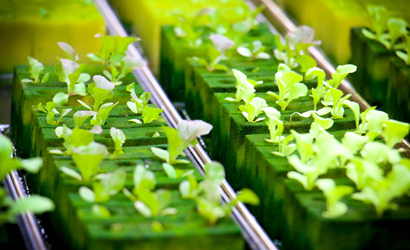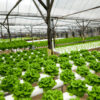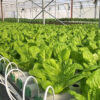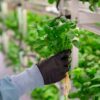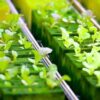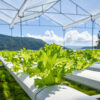In Lucknow, People’s interest in how their food is manufactured has grown dramatically during the last decade. More people desire “safe” food that was grown in a sustainable, thoughtful manner and is free of pesticide residues. As a result, more customers are preferring to produce their own food, and many are looking into hydroponics.
If you want to start a hydroponics project in Lucknow, you need first master the fundamentals of plants grown hydroponically. This website will teach you the fundamentals of hydroponics as well as the benefits and drawbacks of utilizing a hydroponics system.
While plant development requires several metabolic processes, it is essentially due to three factors: necessary nutrients, water, and sunshine. Soil holds the plant and serves as a store for water and nutrients in a typical garden.
A hydroponics system in Lucknow removes the need for soil by delivering a nutrient-rich aqueous solution straight to the plant’s roots, keeping it nourished and watered, while auxiliary lighting solutions simulate sunshine.
People in Lucknow employ hydroponic systems, which consume less water and less space, and allow for bigger crop numbers because they take up less area (may be grown in vertical systems) also the fertilizers can be metered in a way that promotes better development.
Now that we have a choice, let’s look at which, when, and how hydroponic veggies may be produced at home.
With the introduction of home hydroponic systems in Lucknow, the idea that vegetables require large areas with meticulous irrigation and soil conditions to flourish is becoming antiquated.
Hydroponic veggies in lucknow are cultivated in a nutrient-rich solution for the inquisitive. Because you can manage everything from the temperature to the nutrient supply, hydroponic vegetable gardens are well-known for:
- Increased plant growth rate
- greater yield
- Produce available during the off-season
- Water use is reduced, and land requirements are reduced.
- There is no reliance on the weather.
- There is no use of dirt.
- Produce free of pesticides
- Hydroponic veggies are thus suitable for those who live in cities with hectic schedules and little space.


